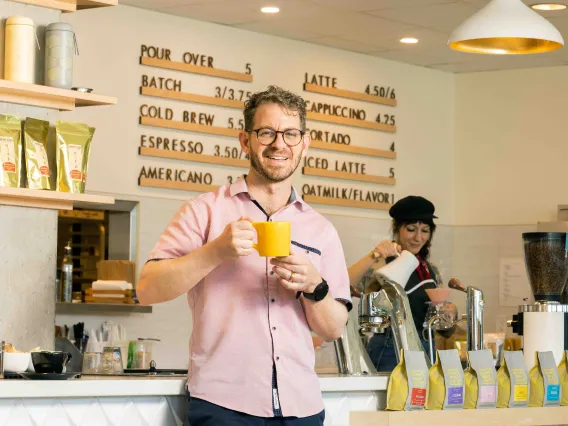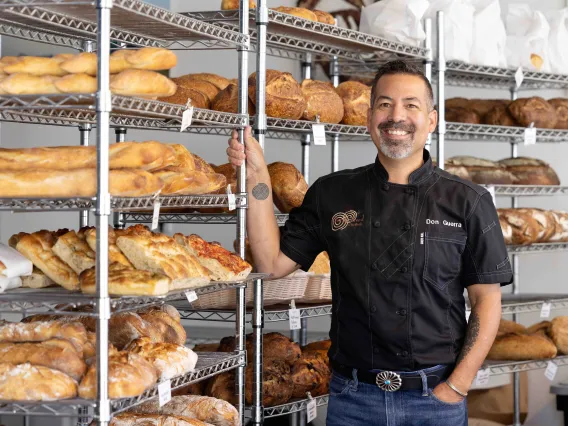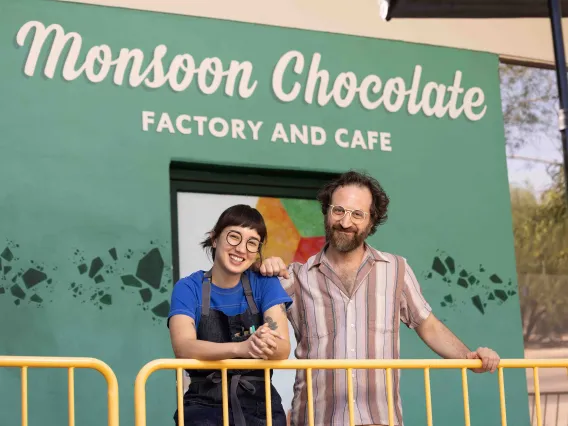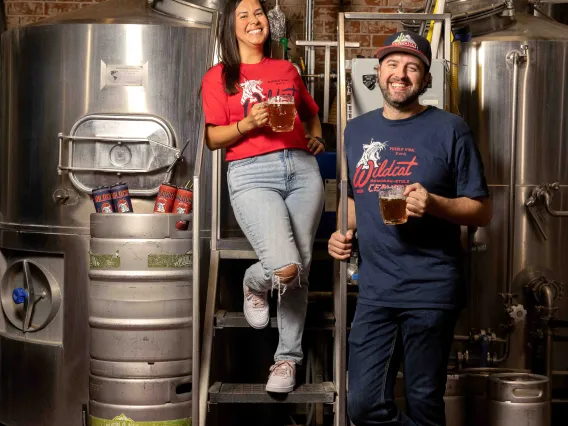Tea Geek
An East Asian studies grad follows his passions for Chinese language and tea.
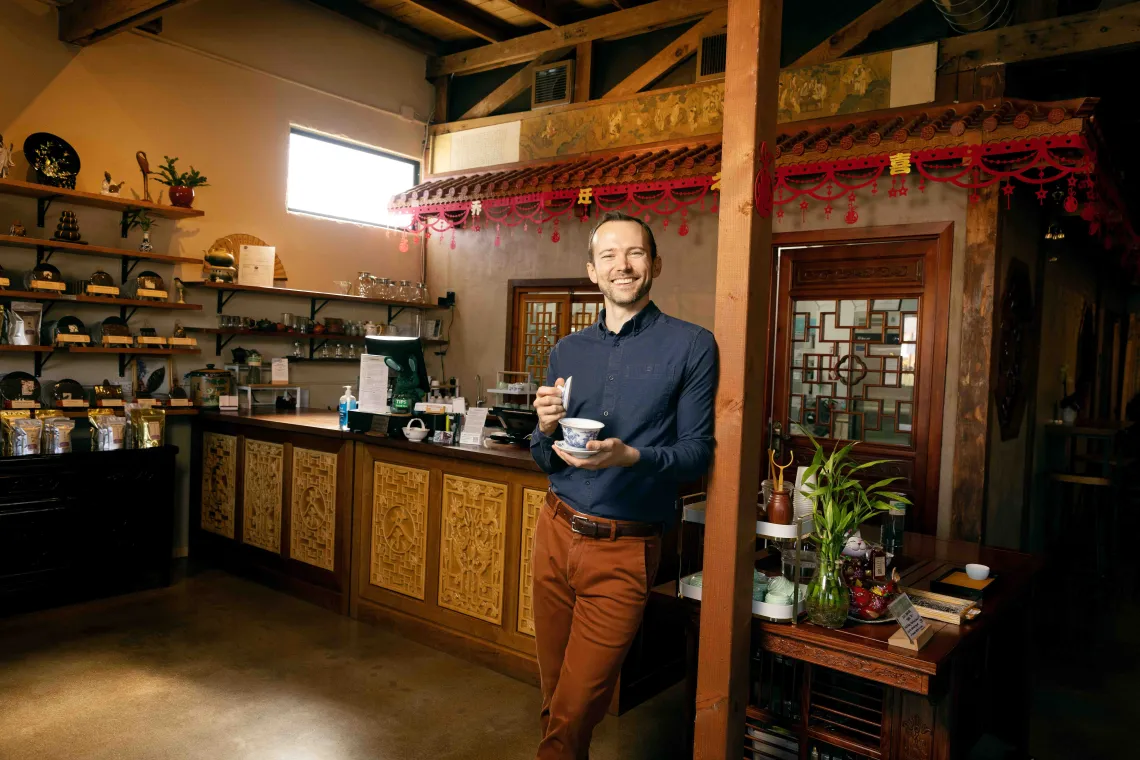
Andrew McNeill ’13 of Seven Cups Fine Chinese Teas
At a varnished wooden table tucked inside the front door of Seven Cups Fine Chinese Teas, Andrew McNeill ’13 prepares a rose herbal, with assorted tea gadgetry — a clay pot, a white lidded bowl — spread before him. The rose herbal is said to cool the body, a welcome effect on this hot September day in Tucson, as the midafternoon sun streams in from East Fort Lowell Road. Nearby, a clownfish flaps its fins in a tank; in the back room, folks chat and sip beneath a high, wood-beamed ceiling.
Every now and then, McNeill pauses what he’s saying to pour a splash each into porcelain teacups small as shot glasses. He’s readied the tea in the white lidded bowl, or gaiwan. “You get a little slice of flavor” with each new pour, he says, sort of like tasting whiskey.
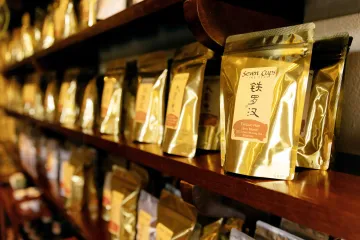
Seven Cups forges relationships with Chinese teamakers.
Seven Cups, McNeill says, was the dream of Austin Hodge, a former software engineer, and Hodge’s wife, Zhuping, once a teahouse manager in Guangzhou, a city in southern China. The business began in 2002, when the not-yet-wed Hodges chose to source teas directly from China — the world’s top producer and exporter of tea, McNeill says — and present them to an American market.
Austin Hodge’s family resided in Tucson, so they chose to open the shop here.
“You have very dense and very long histories of tea production that exist throughout [China],” says McNeill, who today is Seven Cups’ director of business development. “And, historically, China being a very fragmented place linguistically, culturally even, there hasn’t been a whole lot of unity in these teas being available in one place.”
He joined the business in 2007, relocating from central Florida, where he was raised. The Hodges asked that he work in the warehouse and teahouse and that he also keep the books, a jack-of-all-trades role. Then employed by a teashop in Orlando — and a non-degree-seeking student of Chinese language — McNeill says that he moved across the country for a minimum-wage job because no one anywhere was doing what the Hodges, “tea geeks” like him, were.
The tea industry, he says, prized homogeneity and obscured sources to safeguard business interests. But the Hodges weren’t like that. They labeled teas with their year of harvest and chief teamaker, rather than describing them vaguely as being "from China.”
For McNeill, the most important aspect of the Seven Cups enterprise is the building of solid, respectful relationships with Chinese teamakers creating specialty teas across the country — and shepherding that tea to American customers. “Connecting those two ends of the supply chain,” he says, “has been the core of what Seven Cups is.”
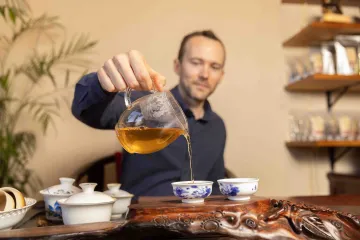
McNeill began working at Seven Cups in 2007.
Respecting Chinese ways of being and knowing, never veering into the “colonial mindset” that he has at times observed among westerners, is of central importance to McNeill. “Knowledge is flowing from here to us,” he says, meaning from the teamakers to him and the Hodges. “We have to understand that that’s the direction that it’s coming.” To ignore or discount the context in which Chinese tea is produced is poor form, he suggests, for both business and the spirit.
The Hodges and McNeill have embraced this attitude of listening and learning in their time running the teahouse — and not only during their sourcing trips to teamaking centers of China like Wuyishan City, a southeastern city famous for oolong where rock formations, McNeill says, almost “hang in the clouds.” Small businesses must listen and learn, he says, noting that the Hodges have relied on past Eller MBA candidates like Mikel Chertudi, today a lecturer at the college, to evaluate the business’s operations.
While working at Seven Cups, McNeill also went back to school, enrolling in 2009 at the University of Arizona, where he declared a major in agricultural economics. He also continued his Chinese-language studies and, at the end of his first year, was encouraged by his professors to apply for a yearlong scholarship program in Taiwan.
“Being accepted to that program really changed my life,” he says. He’d seen new ways of living and learning and couldn’t return to the old. “I wanted to continue to study Chinese,” he says.
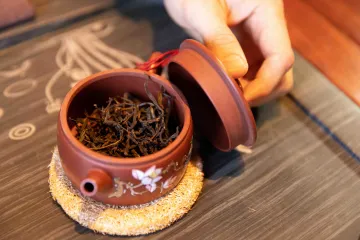
“Especially with the relationships I had with the department, it just seemed too good to leave that opportunity.” McNeill earned his degree in East Asian studies, taking courses in Chinese language; in literature, film and translation; and in anthropology. He also minored in business.
McNeill started reading about Chinese tea when he was 20 or so years old and just trying to find his way forward. Back then, he couldn’t read Chinese-language books on the subject, and only a few were available in English. He didn’t know, of course, that he’d end up across the country, closely studying Chinese language and making a career in Chinese tea. “You get interested in something, and it leads to 10 other things,” he observes.
A cup of tea becomes seven, and before you know it, you have a life.

